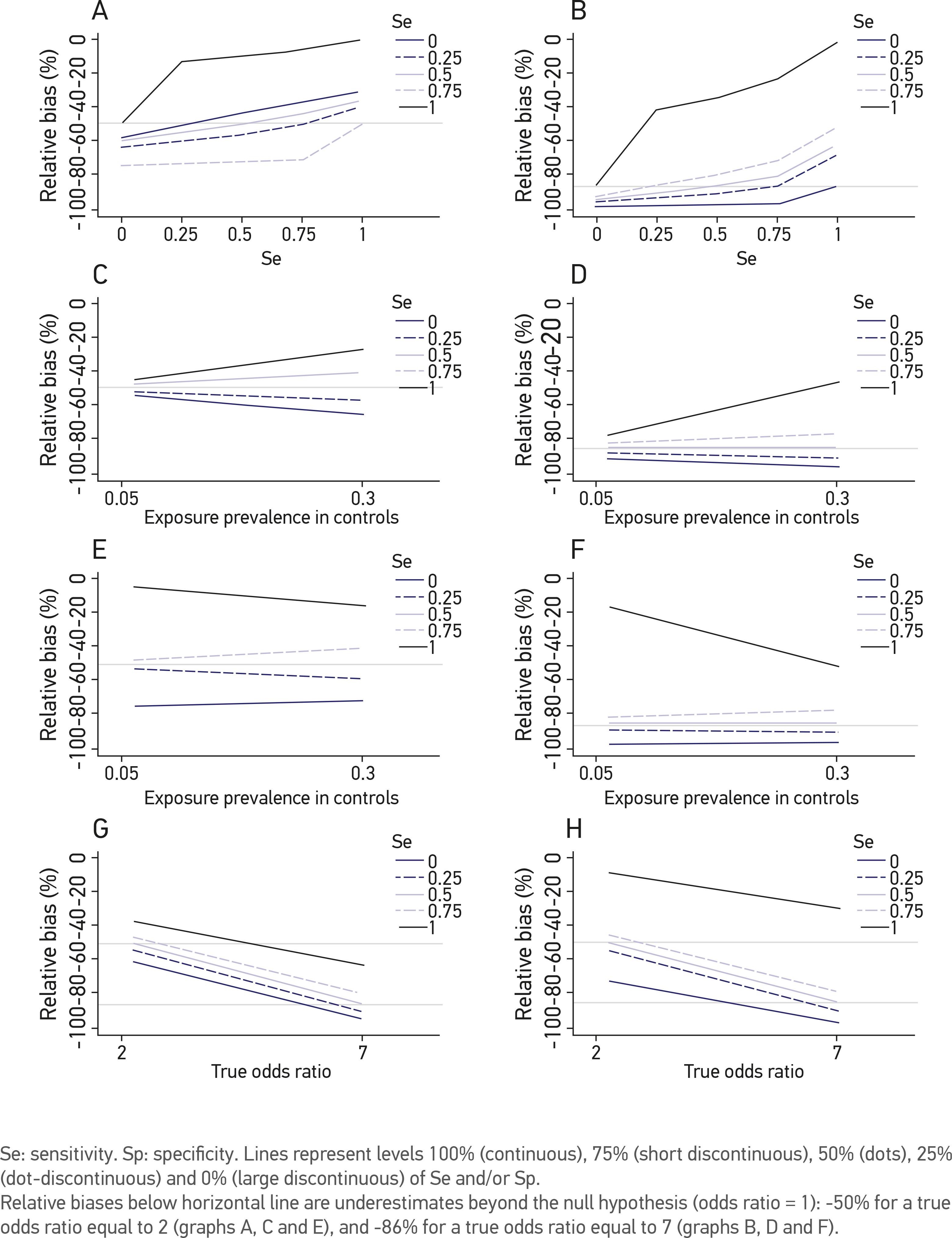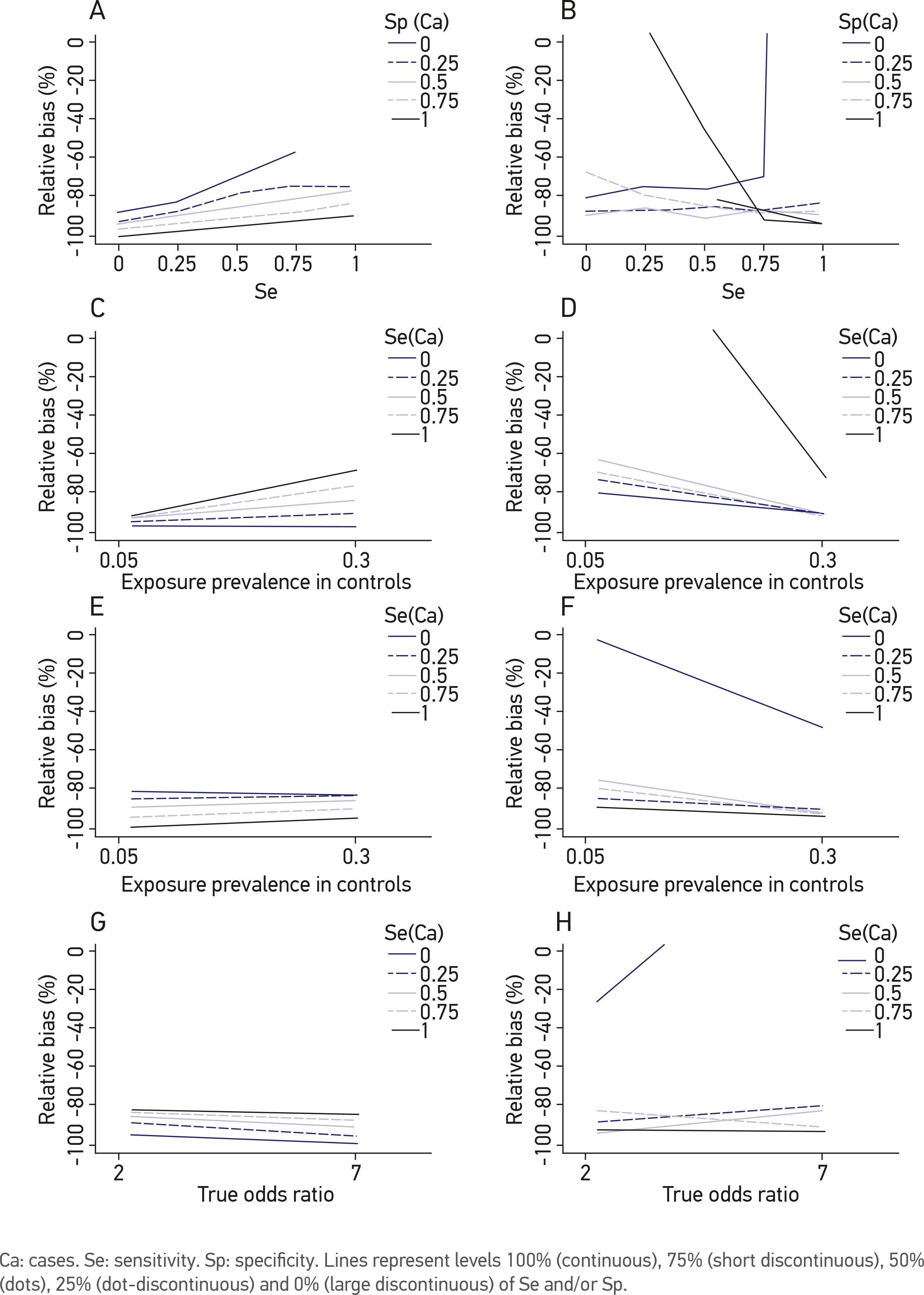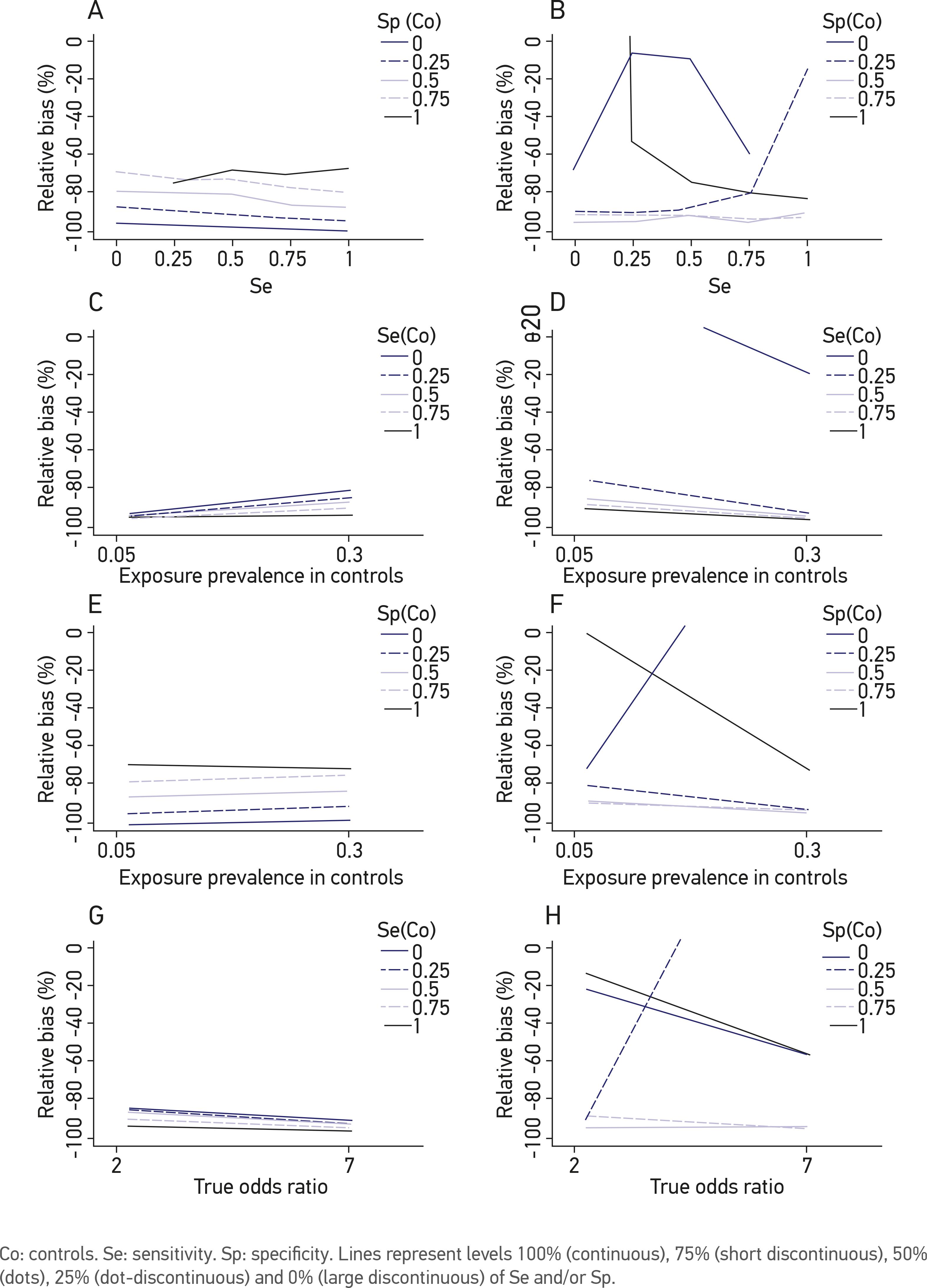INTRODUCTION:
In epidemiological studies, misclassification error, especially differential misclassification, has serious implications.
OBJECTIVE:
To illustrate how differential misclassification error (DME) and non-differential misclassification error (NDME) occur in a case-control design and to describe the trends in DME and NDME.
METHODS:
Different sensitivity levels, specificity levels, prevalence rates and odds ratios were simulated. Interaction graphics were constructed to study bias in the different settings, and the effect of the different factors on bias was described using linear models.
RESULTS:
One hundred per cent of the biases caused by NDME were negative. DME biased the association positively more often than it did negatively (70 versus 30%), increasing or decreasing the OR estimate towards the null hypothesis.
CONCLUSIONS:
The effect of the sensitivity and specificity in classifying exposure, the prevalence of exposure in controls and true OR differed between positive and negative biases. The use of valid exposure classification instruments with high sensitivity and high specificity is recommended to mitigate this type of bias.
Classification; Bias; Case-control studies; Odds ratios; Sensitivity and specificity; Computer Simulation







